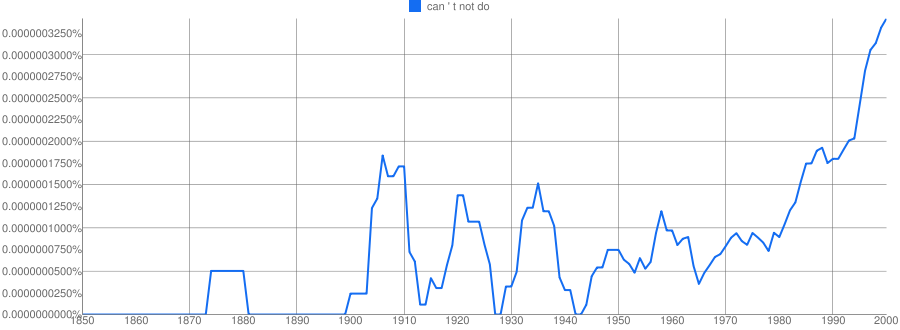Double negatives can be perfectly fine in English.
- If their sum is supposed to be negative, double negatives are very informal or slang in modern English. This usage is frowned upon by many people even if used in speech, unless ironically.
1.) I don't see nothing. (= I don't see anything.)
- If their sum is supposed to be positive, it is generally acceptable in all registers:
2.) I suppose that is not impossible. However, it seems far fetched.
Here the double negative expresses a weak positive, a very common construction.
3.) Not bad, not bad at all! You have just saved her life, young man.
This is a figure of speech called litotes: the double negative (if that's what it is) is used to express a strong positive. Sometimes any double negative with a positive meaning is considered a litotes, including the unremarkable example 2 above. Other people restrict the term to those negations that express a strong positive through an apparently weak positive, in a mildly ironical manner, as in this example (3).
4.) Never a day goes by that I do not miss her. (= I always miss her.)
This is the rhetorical double negative, often considered a form of litotes. It expresses a strong positive, though without irony.
5.) Well, I didn't not enjoy it, but...
Here the word not is used twice, once in contracted form (don't) and once in full, to express a weak positive. Double not is a special case: it is felt to be even more redundant than other double negatives and sounds rather colloquial. The majority will probably use this in speech and informal writing, where it is perfectly acceptable, but not elsewhere.
The boundary between negations and other kinds of words is by no means sharp. The prefixes un- and im-/in- are usually considered negatives, as are hardly and many others; bad is sometimes considered a negative word, sometimes not, etc.

